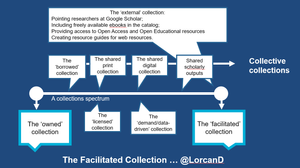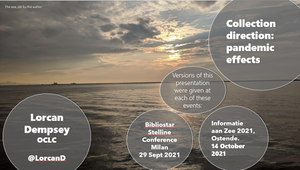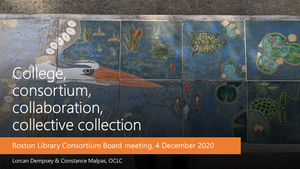Two unrelated notes about Elsevier initiatives. The first about a competition in which they are making available an article-based data set for recombination in external environments or applications. The second about a study of Science Direct usage which shows different patterns of interdisciplinary behavior across disciplines. Although, one could push a contrived relation, I suppose, in suggesting that the latter study potentially offers requirements for some types of application that might be attempted in the competition.
We’ve worked hard to build the Article 2.0 dataset, and now we’re opening it up to developers via a simple, straightforward REST API. We will provide contestants with access to approximately 7,500 full-text XML scientific articles (including images) and challenge each contestant to be the publisher. In other words, each contestant will have complete freedom for how they would like to present the scientific research articles contained in the Article 2.0 dataset. We will encourage the use of XQuery, but this will not be a mandate. By leveraging these APIs, the contestant becomes the publisher and can render scientific articles to meet their needs including integrating the article into existing applications or combining it with other web service APIs. [Elsevier Article 2.0 Contest]
via eFoundations.
The third thought comes from a presentation by Mayur Amin of Elsevier about surveys of usage of journals in Science Direct. One of the interesting findings here is that while for researchers in physics and maths, 70% or more of usage is of journals within the discipline, for researchers in other disciplines, such including chemistry and environmental sciences, usage of journals within the discipline is at less than half that level. This may of course be an effect of the way in which Elsevier classify the journals. But it is at least open to the suggestion that researchers in some disciplines are more inclined to read beyond their own discipline. Is this evidence that some disciplines are more interdisciplinary than others? Is this something worth investigating? [Three Thoughts on Interdisciplinary Research | RIN]
via Michael Jubb.



